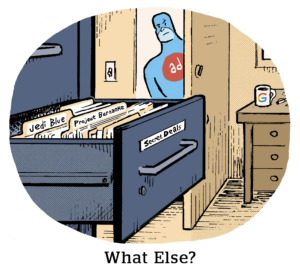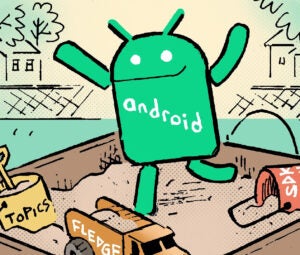What does programmatic media have in common with toilet paper? A lot more than you might think.
Consider the question of incentives, says Sherine Ebadi, managing director of forensic investigations at Kroll, on this week’s episode of AdExchanger Talks. Kroll was one of the ANA’s research partners for its programmatic transparency report, released last year, which found massive waste – to the tune of roughly $20 billion a year – in the programmatic supply chain.
Many of those billions went (and still go) to low-quality, clickbait-infested made-for-arbitrage websites.
Why? If a CMO’s performance is rated based on how they maintain their budget, then it’s no wonder that so many marketing teams use cost and scale as KPIs. The incentive is to buy as many impressions as possible for as little as possible.
“And since you can’t really measure ROI anyway, you’ve stayed within your budget, you’ve gotten a bazillion impressions and you look great,” Ebadi says. “You keep your job and you get bonuses that year.”
(We’ll get to the toilet paper connection in a minute, stick with me.)
So, what breaks this cycle of perverse incentives? Knowledge, Ebadi says, which, as everyone knows, is power.
Sometimes, Ebadi says, they’ll want media that’s more targeted or “better quality,” however they choose to define it, and they’ll be willing to pay a premium. Like people who prefer three-ply Charmin. And sometimes advertisers actually want tonnage and reach, she says, like the proprietor of a cheap motel buying one-ply toilet paper in bulk.
Either way, buyers need – and deserve – transparency from publishers and ad tech vendors about what they’re bidding on so they can tell the difference.
“How are you making good decisions if you don’t have any information,” says Ebadi, who shares tips during the episode for what buyers can do to deal with the problem.
Also in this episode: Combatting information asymmetry in the supply chain, stories and adventures from Ebadi’s decade as a special agent with the Federal Bureau of Investigations and why being willing to ask so-called “basic” questions is a super power. Plus: How the dysfunction in programmatic compares to other industries Ebadi has investigated over her career, including complex financial crimes, public corruption, money laundering and securities fraud.
For more articles featuring Sherine Ebadi, click here.

















